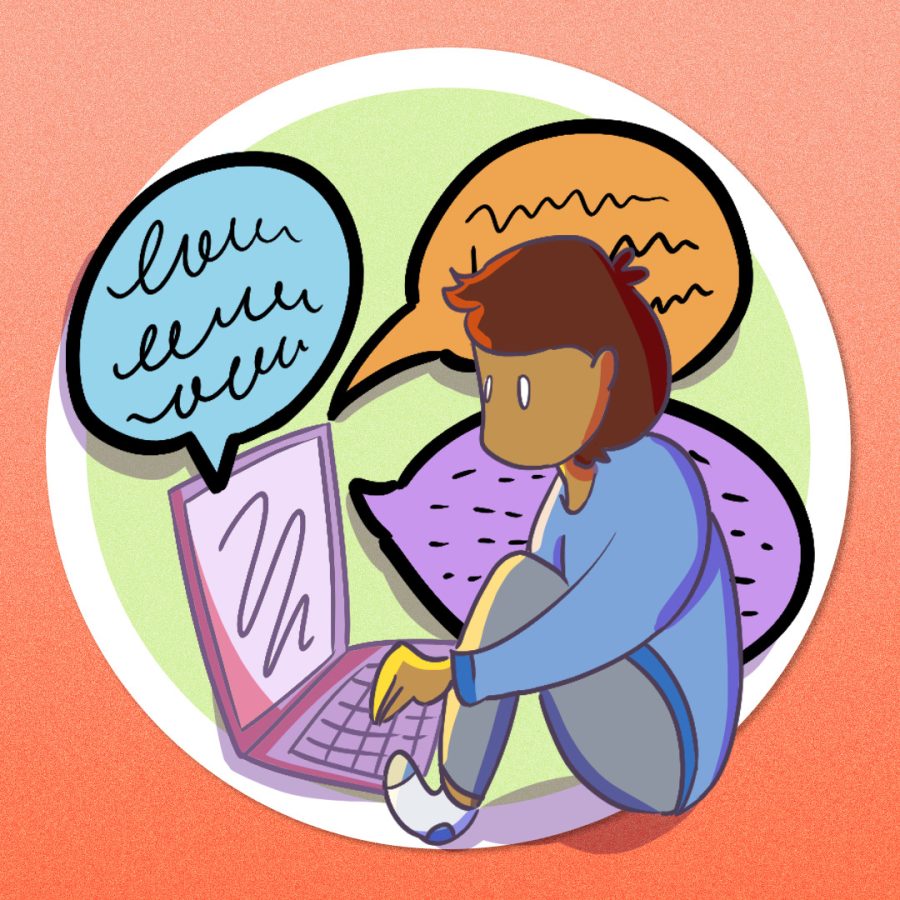IC^2 Institute and Texas libraries collaborate to improve digital literacy
March 25, 2022
Editor’s Note: This article was first appeared in the March 22, 2022 flipbook.
UT plans to collect data to identify areas where libraries need support in order to help Texas libraries better understand digital literacy.
The University’s IC^2 Institute, a research group focused on facilitating economic development, will collaborate with the Texas State Library and Archives commission on the project, which was announced Feb 28th.
“There (are) currently not a lot of places in our communities where people can get assistance with using technology for everyday life skills,” digital inclusion consultant Cindy Fisher said. “For decades since the first libraries were connected with computers and internet in the early 90s, libraries have become an important and essential part of teaching and assisting regular residents to increase digital skills.”
The project hopes to understand the current practices in place to help library visitors successfully use tools such as computers, printers and other technology. Fisher said currently the group is in the beginning stages and plans to send out surveys to libraries throughout Texas for feedback. She said those surveys will help them create recommendations to improve digital literacy in Texas libraries.
Student researcher Jasmine Wright said the questions they ask libraries in interviews and surveys involve what services the libraries provide for visitors to help them learn how to use email, resume building and other basic technology skills.
Fisher said digital literacy is important to libraries today because as technology becomes more and more present, people need somewhere to learn how to use and understand that technology.
“Digital literacy is just part of using digital tools, whether it’s your cell phone, or it’s using a desktop computer to print something off on a printer or connect to WiFi,” Fisher said. “It’s just a really important skill that we have in order to participate in daily life.”
The research team is also conducting interviews with libraries throughout the state, and have contacted about 70 libraries so far. Senior research scientist James Jarrett said he hopes libraries can take the data found from this study and utilize it in their own practices.
“At a library that’s of a similar size (we) could say ‘we ought to try that, it’s worked in X library in East Texas.’ That’s going to be one very practical outcome of this project,” Jarrett said. “There’s also likely to be some additional programming outcomes, where we can make some recommendations to TSLAC … and there may even be potentially some increase in funding.”
Fisher said she hopes the collaboration also highlights the funding and programming needs of libraries in rural areas and underserved neighborhoods across the state. The IC^2 Institute specifically aims to serve communities outside of urban centers, according to their website. Fisher said people in these areas may not have as much access to technology, which may stunt their digital literacy.
“Digital literacy is really important for libraries today because we are in an increasingly globalized and digital world,” said Wright, a Plan II and international relations and global studies sophomore. “It’s almost impossible to do anything nowadays without having to use a device of some sort.”



